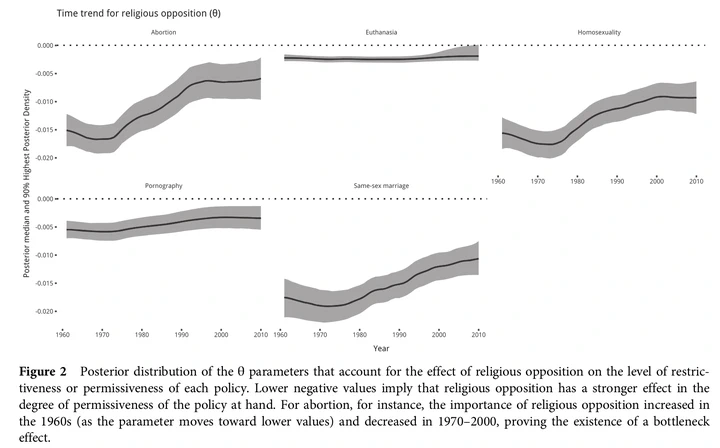Religious tides: The time‐variant effect of religion on morality policies
 Main figure reporting the temporal evolution of the effect of religious opposition.
Main figure reporting the temporal evolution of the effect of religious opposition.
Abstract
Morality policies evince a much closer relationship to religious doctrines than is the case in other policy areas and hence constitute a most likely case for the observation of religious effects on policymaking and regulatory change. Yet we still lack generally accepted answers to the questions of whether and how religion matters to morality policy. In this paper, we present a theoretical argument that helps to overcome the seemingly contradictory expectations derived from the secularization and religion matters hypotheses. We postulate a bottleneck effect of religious opposition: while religious influence matters most during early stages of the policy process when the problem definition of a moral issue is still in flux, it diminishes during later stages when the issue has made it onto the political agenda. We find evidence of the bottleneck effect in a dataset of policy permissiveness covering 26 countries and spanning 50 years for five morality policies (abortion, euthanasia, homosexuality, pornography, and same‐sex marriage). The data is analyzed via a multilevel model and using Bayesian inference.
Online appendix
The online appendix contains an extension of the procedures and results presented in the paper, with descriptives figures of the dataset and the code used for the analysis.
This paper is on the journal’s top downloaded recent papers (June 2019).